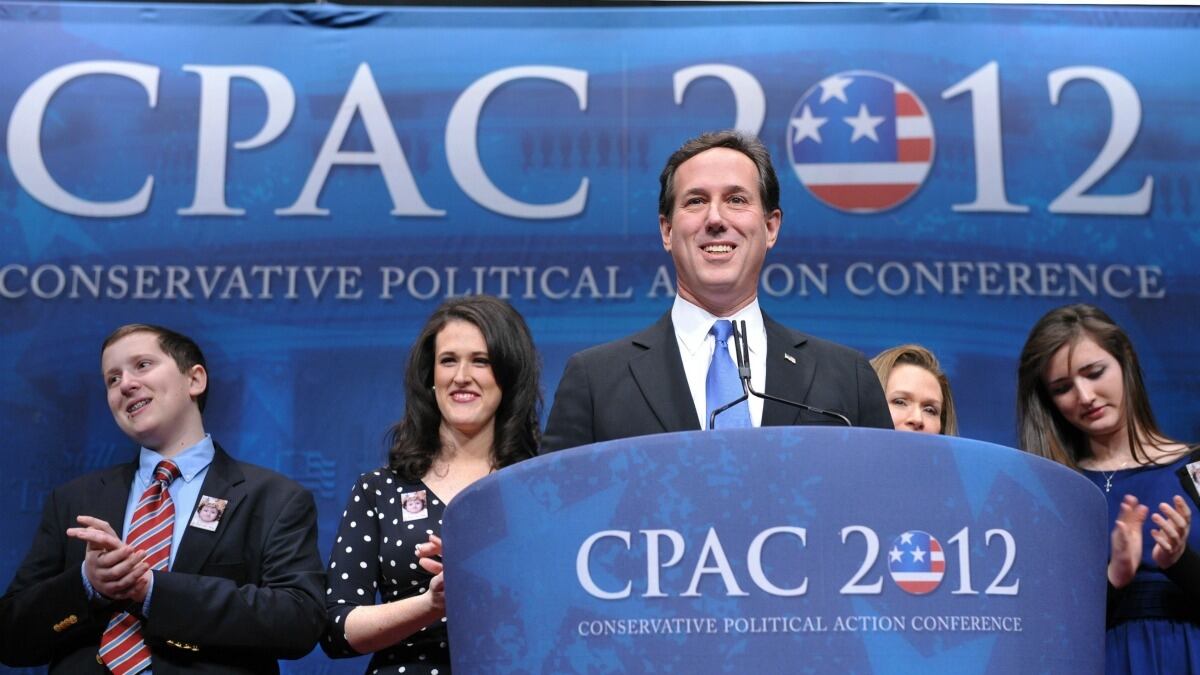
Every candidate this season has had a turn to surge, sometimes even twice. That's the narrative now explaining Rick Santorum, rising in the polls once again and plotting a serious challenge to Mitt Romney in upcoming primaries. Santorum argues he's the last candidate standing between Mitt Romney and the nomination—and if conservatives are having second thoughts, now is the time to write a check.
The sales pitch is working. Rising from an ambient background candidate, Santorum has seen his odds of winning the nomination jump, and most dramatically over the past four days. According to the Election Oracle, Santorum now has a 28 percent chance of becoming the nominee. And his Web favorability, at 59, is higher than any other candidate's. It's not quite time to write his convention speech just yet: Romney still has a 51 percent chance of locking it up, and has been the presumed nominee since the fall. But presidential primaries center on momentum, and with possible upcoming wins in working-class states like Michigan and Ohio, Santorum is uniquely building it.

To determine its odds of winning and favorability ratings, the Election Oracle tracks 40,000 news sites, blogs, message boards, Twitter feeds, and other social-media sources to analyze what millions of people are saying about the candidates—and determines whether the web buzz is positive or negative. That rating is weighted, along with the Real Clear Politics polling average and the latest InTrade market data, to calculate each candidate’s chances of winning the Republican nomination. (See methodology here.)
Santorum's rise, naturally, comes at the expense of Newt Gingrich, who once called for Santorum to drop out of the race (now, the influential National Review says Gingrich should go, instead). In doing so, it highlights the precariousness of sudden surges. Similar to Santorum's path, Gingrich won a decisive primary in South Carolina and rose to the top of polls. He even mused publicly about his first day in the White House, until moderate voters and the GOP establishment turned on him. The same could be in store for the former Pennsylvania senator.
Two questions remain for Santorum. One is whether poll momentum will actually manifest into vote share in Michigan (as in, will people actually vote?). And the second is much more existential. Even with wins in manufacturing-heavy states, will the more moderate, delegate-heavy states like Virginia, Massachusetts or California support such a socially conservative candidate during an election about the economy? Mitt Romney would have you believe the answer is no.
Find the Election Oracle via email at Oracle@newsweekdailybeast.com, or on Twitter at @ElectionOracle.






